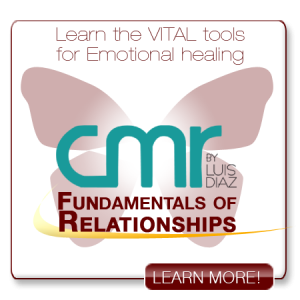
“Let us not forget this: spiritual consciousness and human thought are quite different things. Thought can begin the search but cannot discover what is real. The human mind can unfurl the sails and start the journey, but then it must stand aside and rest, leaving it to the winds of Truth to carry us to our destination.”
—Vernon Howard
Pain happens, while suffering is optional
“That which resists, persists,” says a very old dictum borrowed from Eastern spiritual teachings. Though in some circles it has become a cliché, there is great wisdom in it. Pain can come into our lives in many ways. To resist it is, above all, to deny that it already is with us and to go on blindly fighting against what happens. But to struggle with pain is to struggle with reality, and, according to our experience, to struggle with reality is almost always a bad deal. To understand how useless it is to resist pain, let’s imagine two wheels joined by crossbars and that a hamster is trying to leap from one crossbar to the other. One crossbar is labeled “pain.” Regardless of the crossbar on which the hamster begins running, it will always have to pass the crossbar “pain”. It doesn’t matter whether the hamster leaps towards that crossbar or away from it: sooner or later it will have jump on it, and the quicker it runs, the quicker it will be on the one labeled “pain” again. Pain is part of human life as much as pleasure and joy. And our life is like those two wheels joined by the crossbars of the numerous experiences we have to go through. The best we can do to avoid suffering is to allow things to happen and to embrace our life. But to allow things to happen doesn’t mean to like them or to agree with them. Neither does it means that we shouldn’t try to do something to change them. To honor our life and embrace it definitively, there is no need to like everything that happens to us. Embracing, loving and honoring our life only demands being present and feeling with our conscious awareness whatever we feel at any given moment. To be present does not mean to stop the mind, but to observe it and, from that place of contemplation and presence, to embrace our life such as it is and become not its enemy but its ally.
Life is being permanently created and supported by the whole universe. It couldn’t be otherwise. The ideas we have about how our life should be come from that artificial identity we call self-image, which uses our mind to generate one new fantasy after the other, are the obstacles to embracing what is really going on. To ally oneself with the universe of which we are undeniably a part, and to flow in the incessant creation of that which we call “our life”, constitutes a deep and powerfully wise act. When our energy center of gravity is aligned with the life flow, we can sense love, power and freedom. Then we are like a drop of water celebrating being part of the ocean. We can live at high speed, leaping from one experience to another. So what would happen if instead of running like the hamster within a giant self-fantasized wheel, we stopped to live thoroughly, honoring each experience and event as it occurs in the universe? What if instead of spending our energy trying to carry out our grand plans, predictions and ideas, we admitted that those plans and ideas are, in fact, part of the same universe that recreates itself through us? If we accepted this reality, we would be suddenly calm and at peace, because we would realize that what must be will be, and what must be done will be done, through us.
By virtue of the process of individual programming and conditioning along many generations, we have been taught to believe that if we don’t make something happen, it won’t happen. I think this is the same as watering a garden when it is already raining. An inner attitude of flowing with life demands great creative power. To make an alliance with the movement of the universe as it is manifested in what we call “our life” is to let powerful change occur, changes that are already there, waiting to be allowed to occur, in agreement with some other plan that may not be those conceived of by our conditioned mind.
The discussion of this subject is necessary because it enables us to detect and cancel out those areas of our life in which suffering prevails. In The Power of Now, Eckhart Tolle advises what we should do when trouble or nuisance affects our life. He says that when we are at peace with ourselves, flowing with life, we have always three non-suffering options; however, most often we choose a fourth, which is, precisely, suffering. Options 1. To change what I don’t like, or to ask for what I want, ready to receive a “No” answer and to negotiate as needed. This means to use every possible means to change the situation. If I’m cold, I put on some clothes or look for shelter; if I’m hungry, I eat; if I’ve no food, I ask or search for it; if I’m ill, I try to heal myself, etc. If I have trouble in the relationship with somebody, I resort to conscious communication, speaking honestly, expressing how I feel and what my needs are. I make all the required demands knowing that the answer to everything I demand may be “No” but also “Yes”. I implement every needed change, convinced that if changes are possible, it means that the universe agrees with them, or, in other words, that the universe makes changes through me. Now, if even doing every possible thing I can’t change the situation, there are two more options available without losing peace of mind. 2. To accept wholly and thoroughly what is happening without blaming anybody or complaining about anything, at peace with myself. This doesn’t mean to give up or surrender, which would imply to generate emotional contractions full of sadness, resentment, fear or guilt. When we accept life and are allied with it, we find ways to enjoy it such as it is. Accepting or giving in after trying every possible change—or even while we are trying—gives us a lot of energy and makes us much more creative.
By virtue of the law of attraction, we thus attract into our life energies similar to ours. In the case of chronic or terminal illnesses, incurable physical disabilities, tragedies, accidents, or the death of a loved one, this attitude may provide a lot of inner peace and strength. Besides, it increases the ability of our body to heal itself, because it is not spending its vital force in imaginary pain. There are countless examples of people who were able to improve their quality of life in a surprising way just by finding their inner peace and making an alliance with life instead of resisting it. But if I can change nothing and it’s impossible for me to accept, there is still one more option to exercise without losing peace. 3. To leave the situation behind is the third available option without losing my inner peace.
Let’s give an example: suppose I’ve come to realize that one of the most relevant needs in my life is to be at peace and enjoy it, but my work demands that I remain shut up inside an office all day long, surrounded by a tense and noisy working environment, where people quarrel all the time. Then:
I resort to my first option and try to change the situation. I talk about it with my boss, ask for a transfer to another department, etc. If even so, nothing changes, I try to accept the situation such as it is. However, I can’t; at the end of the day I’m exhausted, in bad temper, and my mind incessantly judges and complains. In other words, I suffer. In that case, I set in motion the third option: I leave the situation behind. I look for another way of earning a living which is more consistent with my principles, priorities and life values. What is important is to be clear about not negotiating our inner peace at any cost. It’s easier said than done, I know. The main obstacle I’ve found in myself and in other people is that we’re culturally programmed to be victims, to complain and suffer—and this is the fourth option we nearly always choose. We saw this option exercised while we grew up and continue to see it everywhere. We have seen our family, teachers and many other people suffering, not enjoying their lives, and became convinced that it was natural and normal. “Life is suffering,” they say, and we agree, we believe it and turn it into truth. It can only be natural and normal inasmuch as we are unaware of who and what we really are. When we believe that we are what we aren’t, we live lying to ourselves. And the natural consequence of lying to oneself is suffering.
When we ignore that we can choose between the options and continuously pick the same option – to be a victim – then it’s almost impossible to be at peace with ourselves. In other words, we inadvertently choose to complain, to be anxious or worried. We choose to accumulate resentment, to accuse and blame others, to lie and hide, and to use many other strategies in order not to take responsibility for our lives.
~~~ Exercise
Take a piece of paper and a pencil. Think about your life and try to detect the areas in which there is suffering. Answer questions 1, 2, and 3, keeping in mind that your aim is to live at peace and to enjoy life.
AREA …………………………………….
1- Is there something I can change in this situation? Yes – No
I can change ……………………………………………………………………………………………………………………………………………
2- Am I willing to make the change? Yes No
3- Can I accept this situation such as it is? Yes No
Am I willing to accept it?
4- Can I leave this situation behind? Yes No
Am I willing to leave it behind?
A suggestion: Start with something easy, such as “I don’t like that my desk is always a mess,” or “I know I’ve got a cavity but I won’t go to the dentist.” Then choose something much more complicated, such as “I don’t like how my legs look,” or “I don’t like my daughter’s boyfriend.”
Have fun with it!

